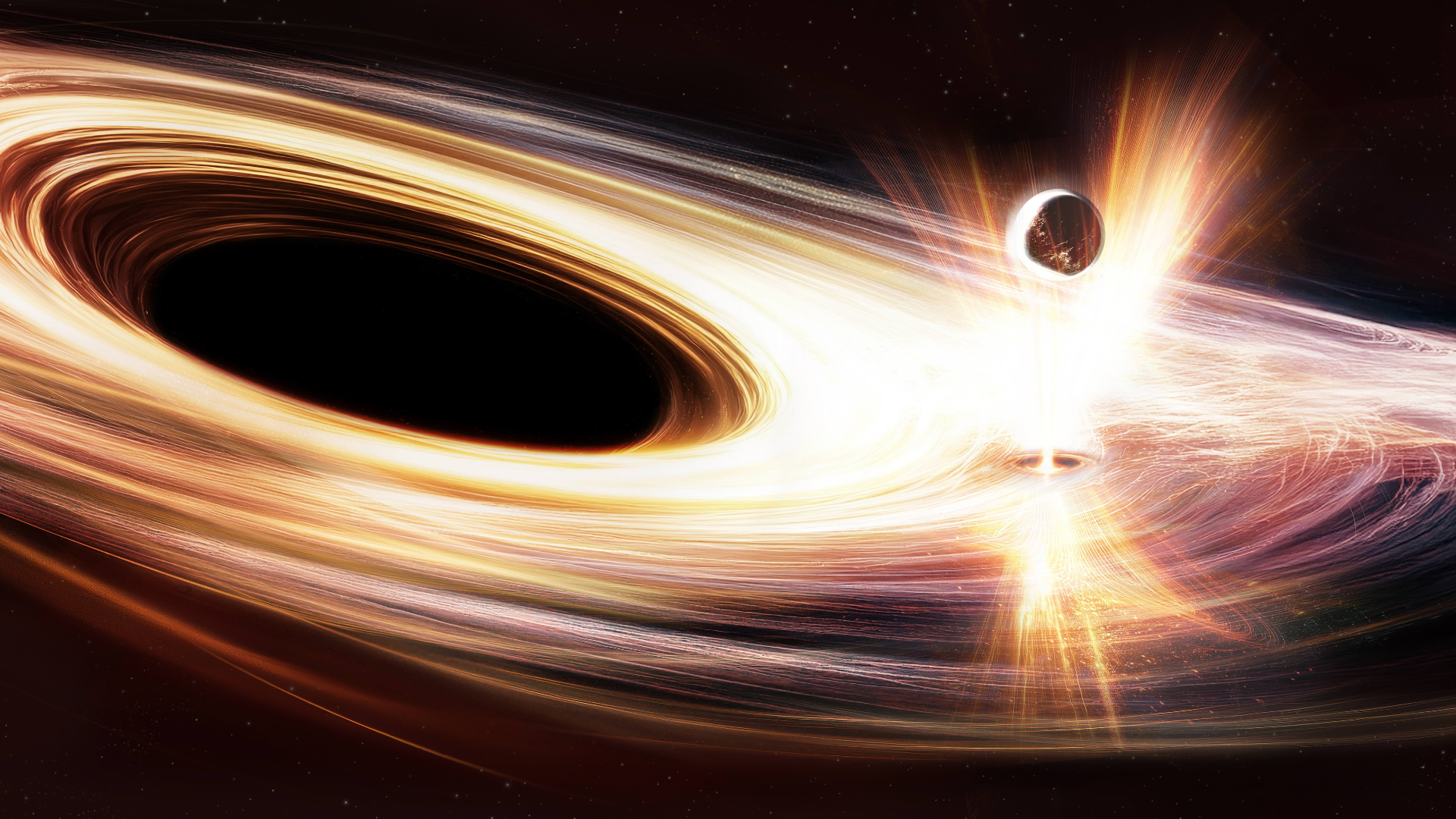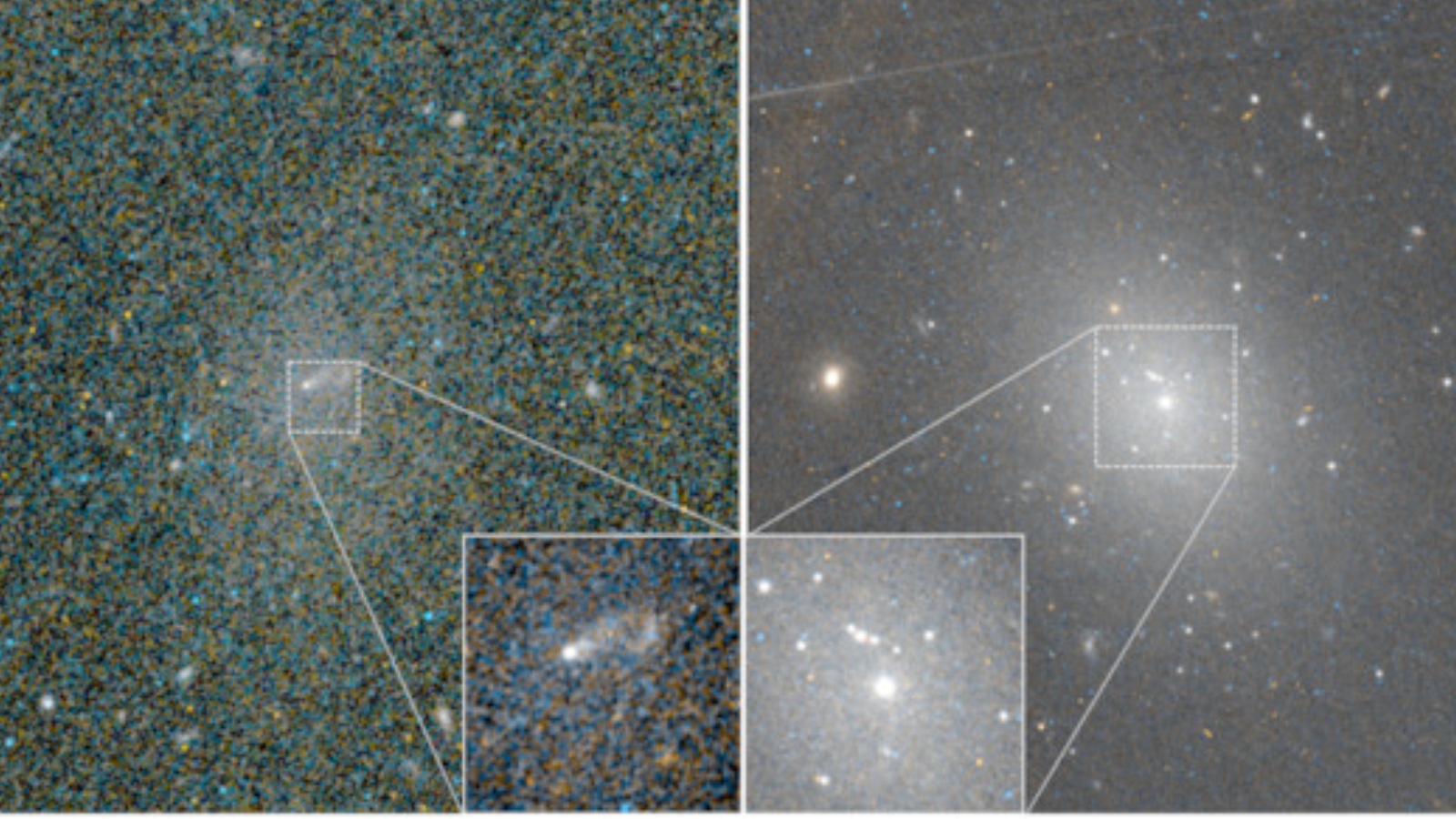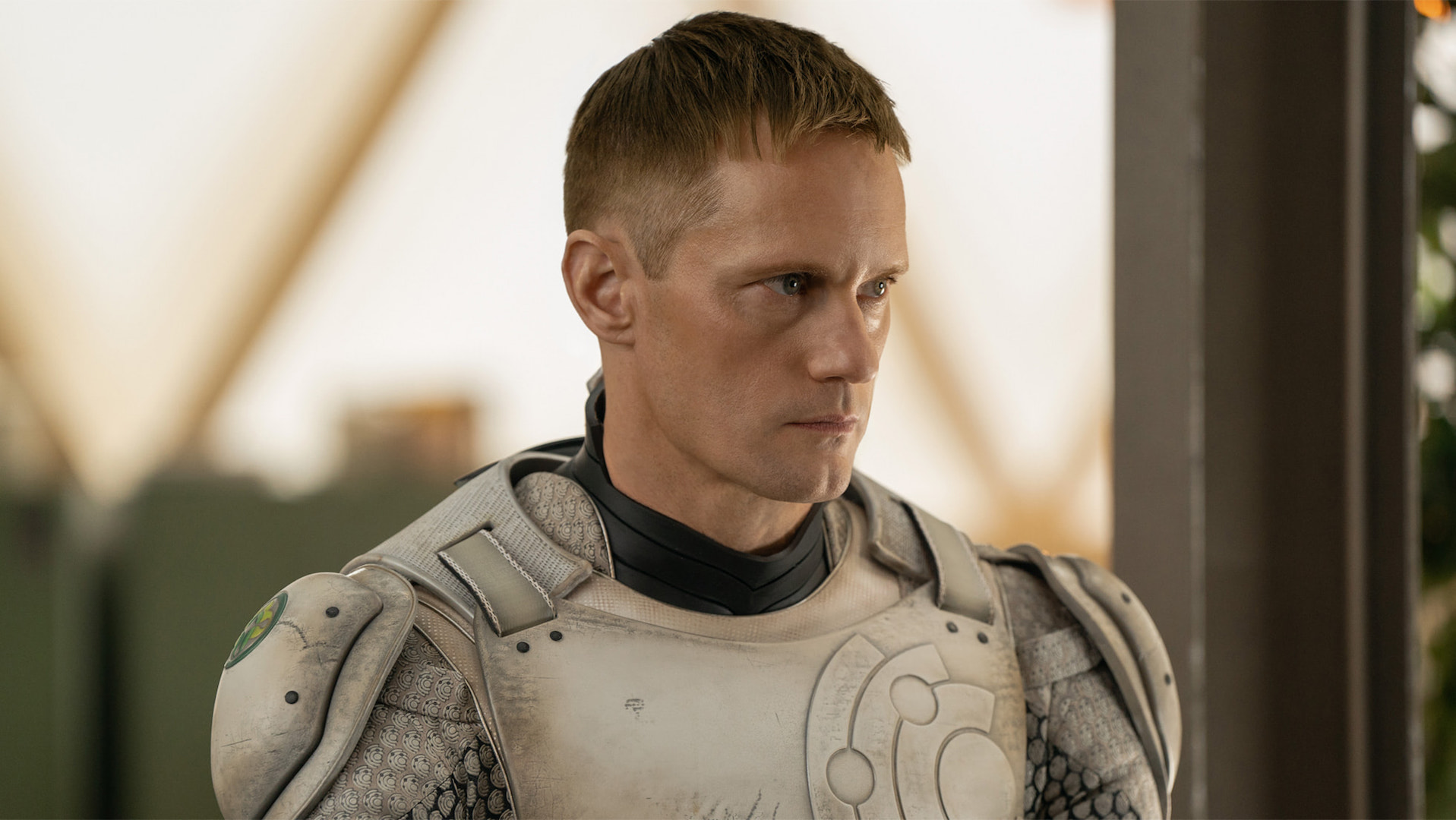'Star Trek Discovery' season 3, episode 7 recap: The series' strong start feels like a different show entirely
Substandard writing lets us down in the latest episode: "Unification III."
Scanning for spoilers now, Captain…
Every week, we hope "Star Trek: Discovery" on CBS All Access might show some sign of returning to the form that we saw in the outstanding season 3 premiere episode, but alas, aside from a few isolated pockets of potential, it has for the most part been a continual downward slide and this week's installment also fails on what are frankly, fundamentals.
Entitled "Unification III," this episode is a reference to "The Next Generation" two-part story, "Unification I" (S05, E07) and "Unification II" (S05, E08) in which Ambassador Spock (Leonard Nimoy) attempts to reunite the Romulans and Vulcans, since they were originally the same race. We'll look at the link to this later; in fact this week, our recap is going to be a little less recap and more opinion because as passionate, life-long fans, we are disappointed with the quality of writing on "Star Trek." Again.
Despite the inference of the episode title, this installment is mainly focused on being a vehicle to get Cmdr. Michael Burnham (Sonequa Martin-Green) to shake off the significant personal and psychological changes she went through after spending a whole 12 months away from the Discovery crew. And we've spoken before about how ridiculous and unrealistic this notion is.
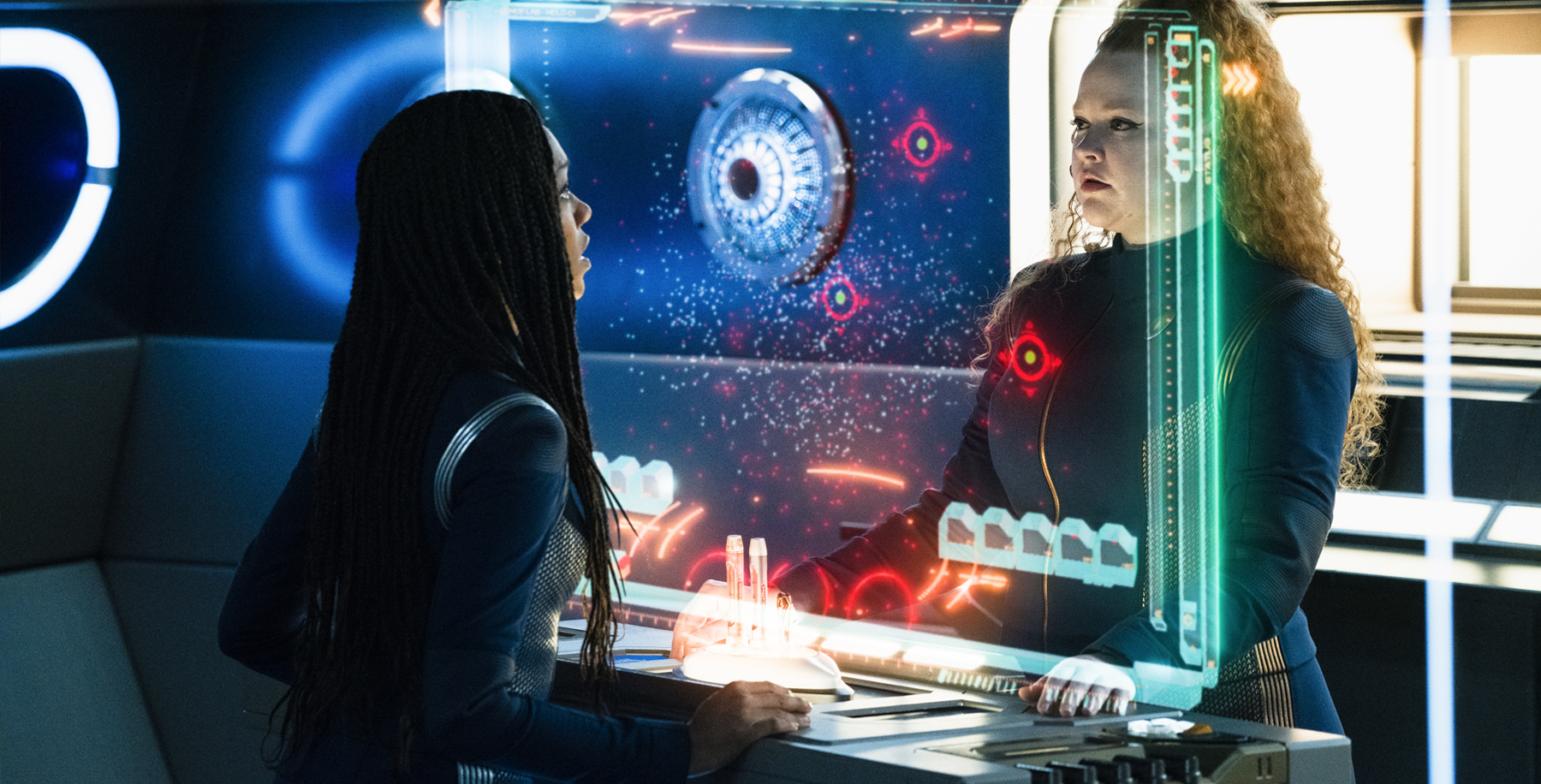
Such a big deal is being made of Burnham's one-year wait and how much she's changed over that time. It's just one year. Twelve months. Three hundred and 65 days. You'd honestly think she'd been through a "Cast Away"-style experience and that was four years. Do people in Starfleet never take a sabbatical? Do students in the 23rd century never take a gap year? To ensure this was more believable, the writers should either have extended the time that Burnham had to wait — even to say, three, or possibly four years — or simply not repeatedly returned to reemphasize her experience.
An added bonus of it being a longer period of time could've been that Burnham and Book (David Ajala) spend more of the series on their own — and likewise the crew of the Discovery— before they all met up. That would've given Saru and the crew of the Discovery a nice opportunity to have an equal share of the plot, rather than having Burnham always being the one driving the story forward. Or two primary plots, rather than a primary and a secondary.
We open with Burnham recording her personal log and reminding everyone that she's uncertain about whether or not she belongs in Starfleet, just in case the viewer was still unclear. And rest assured, by the end of this episode she will have unceremoniously binned Book, who is the best thing that will probably ever happen to her. But first they have to be intimate, because we are meant to believe that they have never shared a single intimate moment in the entire 12 months they were together, despite being in a number of life threatening situations. It's important that they quickly take their relationship up a notch before she choses Starfleet over a life with him in about 40 minutes' time.

And no, having Book hang a lantern (a term used by writers to highlight an issue or inconsistency and then purposefully incorporate it) on Burnham's messianic complex as they engage in post-coital pillow talk does not equate to a "get out of jail free" card for poor writing. If the entire relationship-with-Book sub-story had been effectively – and more evenly – spread out across the previous six episodes, it wouldn't come across as such a rushed plot in this one.
Get the Space.com Newsletter
Breaking space news, the latest updates on rocket launches, skywatching events and more!
After the obvious set up that Book is headed for downtown Dumpsville at the end of this installment, Burnham goes to speak with Tilly about the data recovered from the black boxes. Turns out that "the burn" wasn't instantaneous across the whole galaxy and so therefore it had an origin, so she and Capt. Saru (Doug Jones) take it to Adm. Vance (Oded Fehr).
Another inconsistent element of recent episodes has been Saru's attitude towards Burnham's new, cavalier attitude; at the end of "Die Trying" (S03, E05) Saru seemed to reach a compromise between his way of thinking and Burnham's, then at the end of last week's episode, Saru reprimands her for going in an unsanctioned mission. Well, this week we're back to approving her actions, possibly because Vance sees her potential, at least in this instance and in fact, soon in this episode we'll see a pretty solid reason why Saru shouldn't even be captain of the USS Discovery.
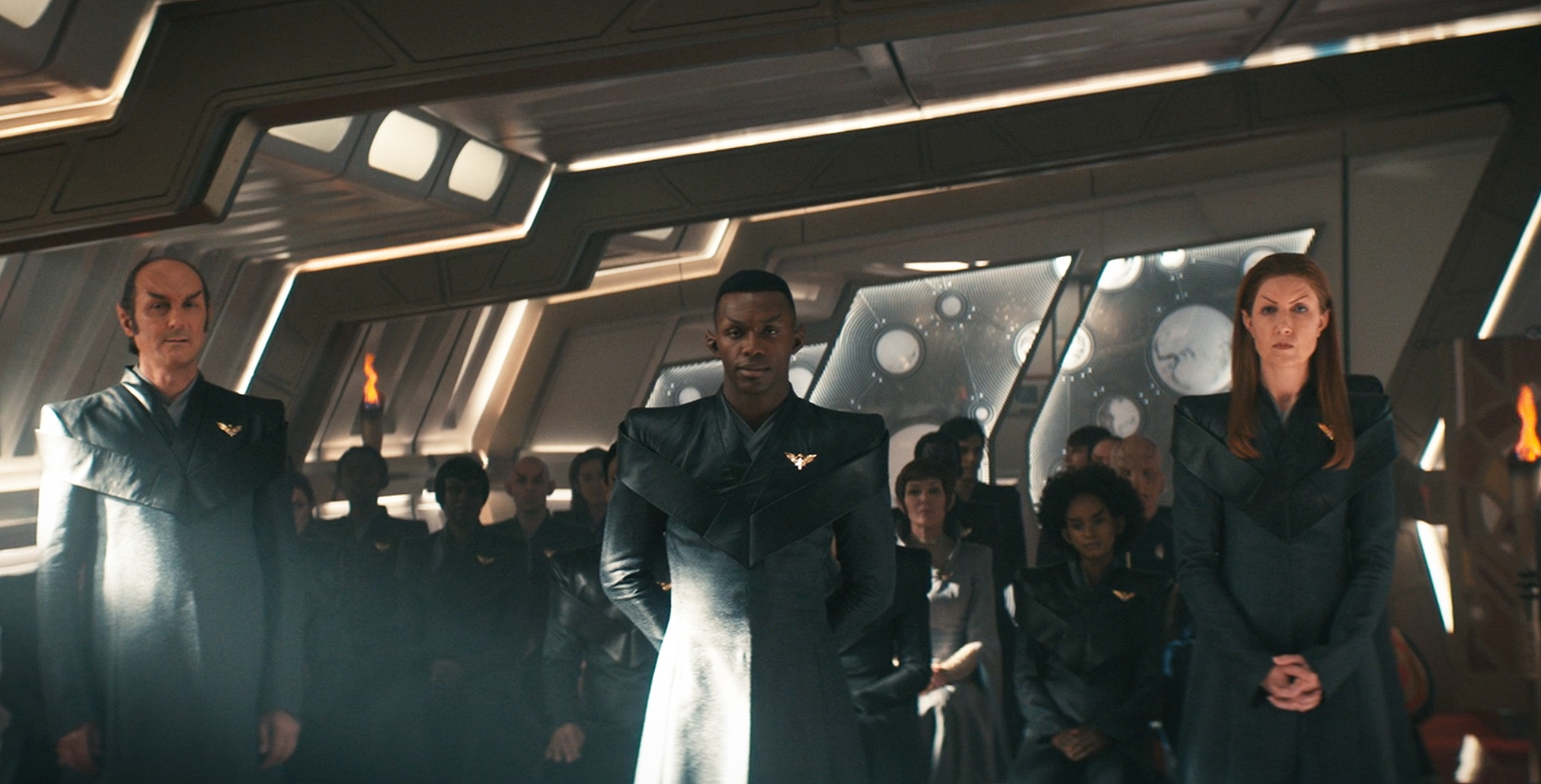
Apparently, there was a project called SB-19 that involved lots of scientific sensors spread across many light years of sub-space. The data for this project is kept on a planet called Ni'var, probably better known by its former name, Vulcan. Following the great lengths Ambassador Spock went to in 2368, some 800 years ago, to reunite the Vulcans and the Romulans, it seems his work was eventually a success and both races now live together on Ni'var.
Ni'var was a term coined by Dorothy Jones who wrote a series of "Star Trek" stories for the fanzine T-Negative in the late 1960s and early 1970s. According to Memory Alpha, it literally means "two form." It was also the name of a Vulcan Suurok-class combat cruiser that appeared in the "Enterprise" episode "Shadows of P'Jem" (S1, E15).
Since Burnham is the adopted son of Sarek, she is deemed perfect to be the Federation envoy sent to Ni'var to ask if they may see the SB-19 data. President T'Rina (Tara Rosling) isn't particularly interested in their motives and denies them access. So, Burnham invokes the new-to-canon T'Kal-in-ket, a "philosophical process designed to unearth deep truths, it's credited as being one of the engines that lead to early Vulcan scientific advancement." Once invoked, the request cannot be denied.
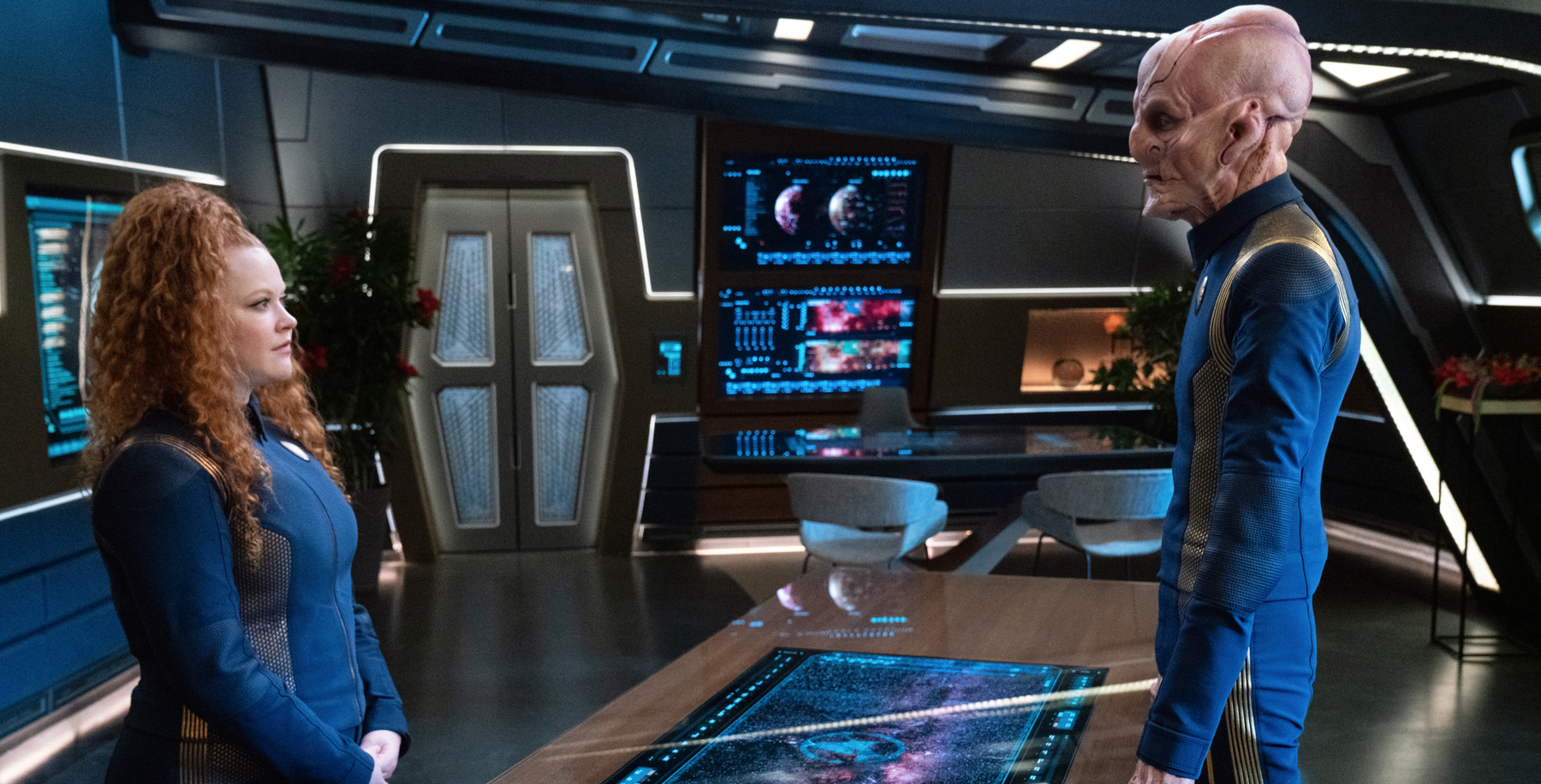
While we still don't like the Small World Syndrome notion that Burnham had to be related to Sarek and therefore also Spock that goes all the way back to the first season, we've … er, just about moved past that. However what really grinds our gears is that in the secondary plot, Saru has seen fit to promote Ensign Tilly (Mary Wiseman) to acting First Officer. Now, given that the other members of the bridge crew have hardly had two lines to say between them throughout the whole series — which is really bad script writing — it's pretty damn obvious it was going to be Tilly, but from the perspective of being in the service, it literally makes no sense whatsoever. She has next to zero experience leading a department, no experience leading a team or managing schedules, or personnel reports or day-to-day team problems. Moreover, is no other member of the bridge crew interested in furthering their own careers?!
If Starfleet is to be believed to operate like the Federation's navy, then surely it must follow similar protocols. Saru's decision would — if this is meant to be believable — seriously place the crew's lives in jeopardy. If believability is secondary to what the writer's room thinks is cool, then why not have a sassy, super-intelligent space monkey with a PhD in ancient philosophy emerge from an inter-dimensional gateway take the role of Discovery's number one? (Paws off, Kurtzman, that's mine.)
Even Lt. Wiilla (Vanessa Jackson) would've been a better choice, both from a storytelling perspective and one of chain of command. She could've been Vance's insider on the Discovery, reporting back to him in secret as she gradually understood first hand the unique qualities that the crew possess and offering an extreme right influence to counter Burnham's left.
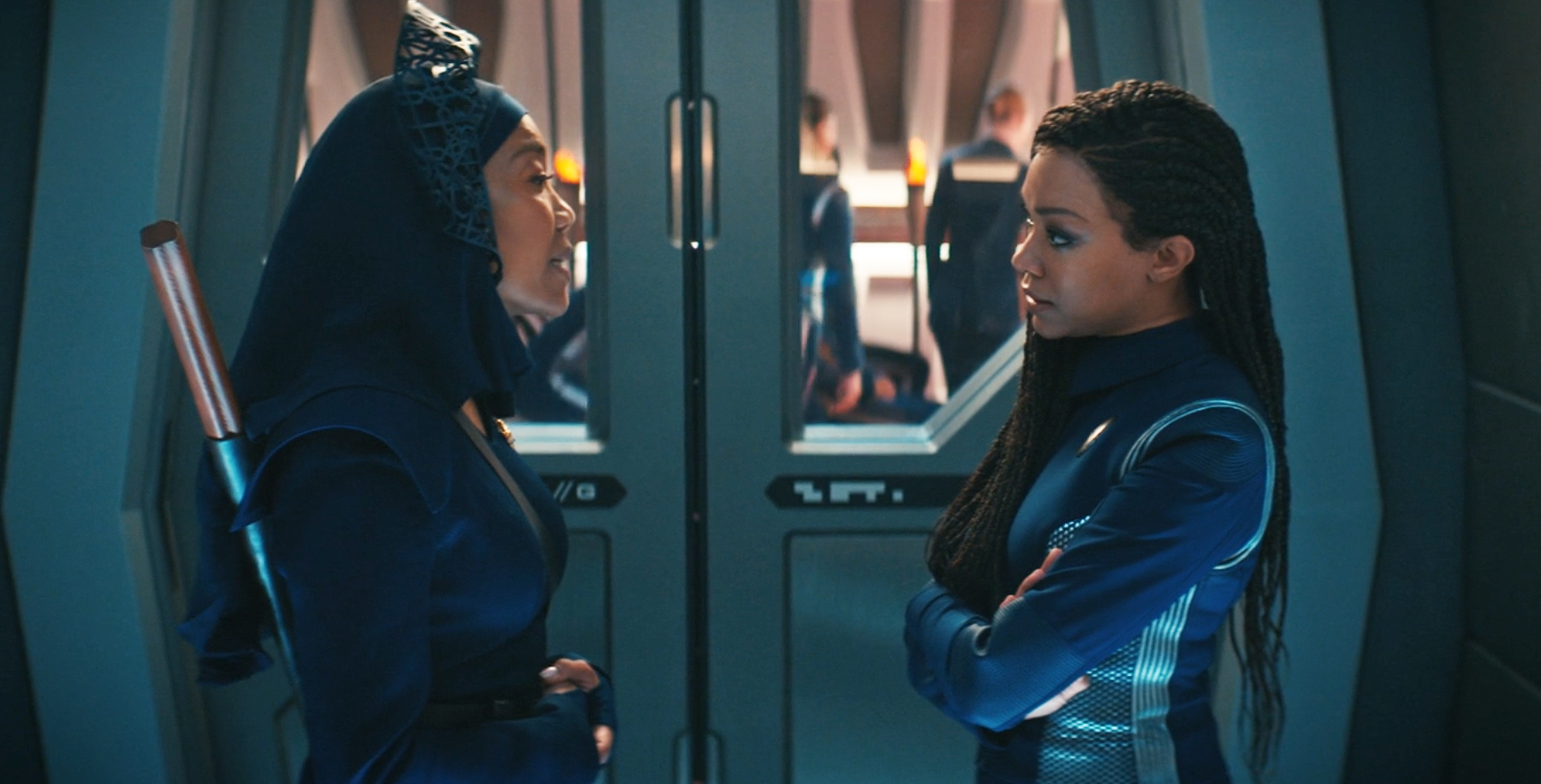
So, invoking the T'Kal-in-ket means a courtroom style drama as Burnham must present her "case" for wanting the SB-19 data in front of N'Raj (Oliver Becker) — the Romulan elder, who longs for greater self-governance; Shira (Stephanie Belding) — who speaks for the Romulans and Vulcans who are trying to forge a new path here; and V'Kir (Emmanuel Kabongo) — who is the young leader of a sect of Vulcan purists. Out of these three, one is all for it, one is dead against it and one sits on the fence without committing to one side or the other. So all the bases are covered.
To act as her advocate — or "shalankhkai" in Romulan or "sha-set" in Vulcan — will be a member of the Qowat Milat, an interesting addition to "Star Trek" canon introduced in the "Picard" episode "Absolute Candor" (S01, E04). This is a sect of women-only, Ninja-like Romulan warriors where "absolute candor" is the rule, which means only the truth is spoken with no filter between thought and word.
And it turns to be…none other than Burnham's mother, Gabrielle (played by Sonja Sohn), last seen in the episode "Such Sweet Sorrow" (S02, E13). And if there was ever a time for Burnham's Bottom Lip™ to start quivering uncontrollably, this would undoubtedly be it, but unlike every other moment during this episode, she surprisingly — almost uncharacteristically — holds it back.
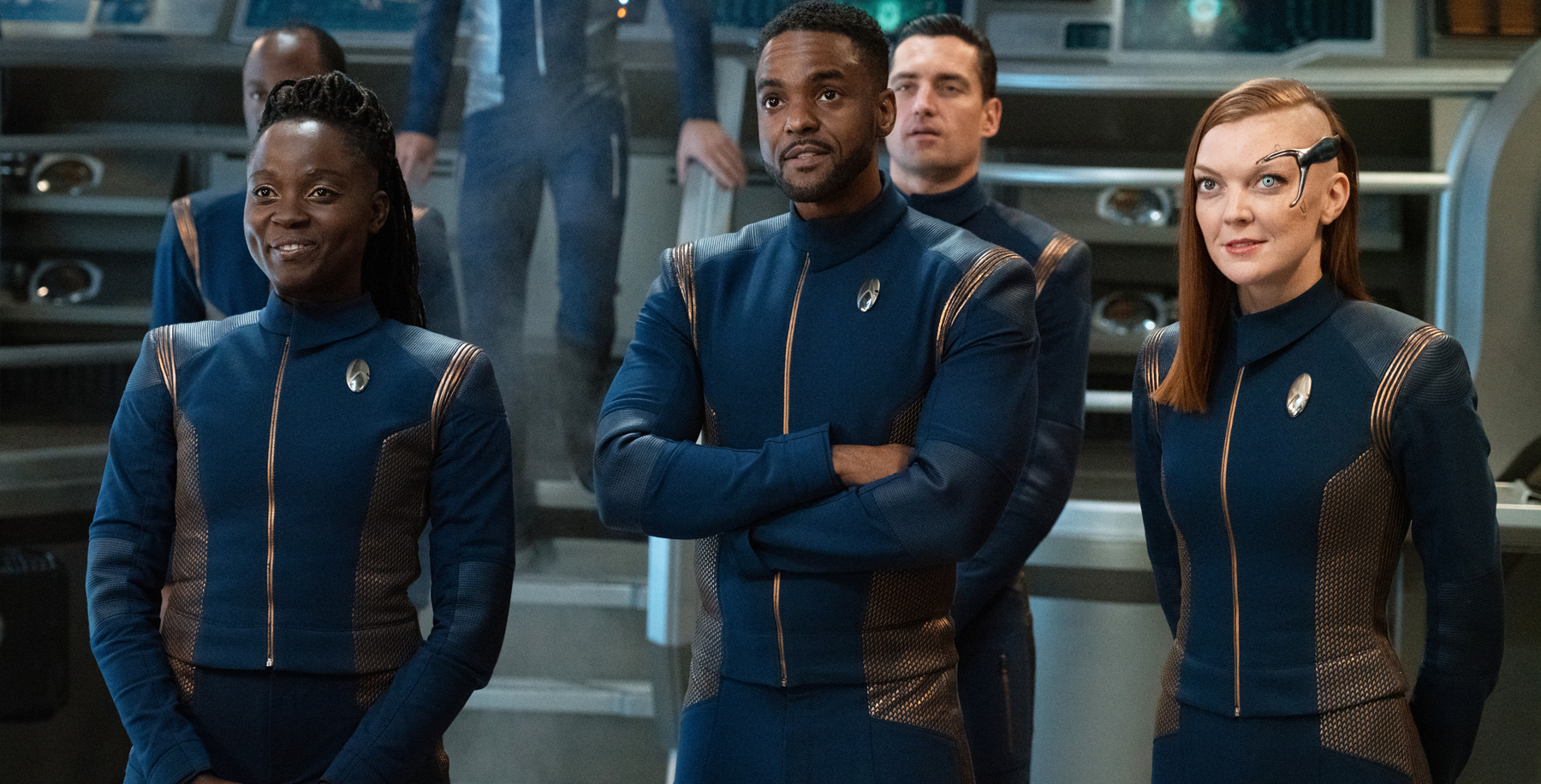
So, what starts as a set-up to a tense courtroom-style set piece as Burnham presents her case on behalf of the Federation to share the SB-19 data turns into an open personal therapy session as Burnham's mother – in front of everyone – digs deep into the reasons why Burnham feels like she doesn't belong in the Federation anymore. And in her Oracle from "The Matrix" I-told-you-what-you-needed-to-hear routine, makes Michael realize that she wants to remain on the Discovery rather than go off and have a really exciting life with Book and Grudge. And that's what this whole set piece – and in fact this whole episode – was really all about. You can see what the writers were trying to do, but the execution well and truly falls flat.
Burnham gets fed up with the whole affair – and oddly her feelings mirror our own – and she revokes her T'Kal-in-ket, saying despite the fact that the people of Ni'var won't share their data, she will still share hers. It's a move that suitably impresses President T'Rina, who afterwards secretly permits Burnham to have the data.
In addition to the obvious "Next Generation" throwback, the title "Unification III" could also refer to the rejoining of three separate pairs: Burnham and her mother, Burnham and Starfleet, and Starfleet and the people of Ni'var, but that's probably just coincidence.
The writers of Discovery seem to think that excessive sobbing and over-emotion are essential for good drama, but week in and week out, it's simply repetitive and it's getting tired. In past interviews, showrunner Alex Kurtzman has said that "Star Trek: Discovery" was meant to be a vehicle to not only satisfy existing fans, but also to bring new fans in, but we fail to see how he's accomplishing that by giving us an unnecessary, excessive emotional outpouring in just about every single episode. Do the writers watch the most depressing movies they can think of before brainstorming new episodes? Does Alex Kurtzman make everyone in the writer's room peel and slice 20 raw onions before beginning the morning briefing?
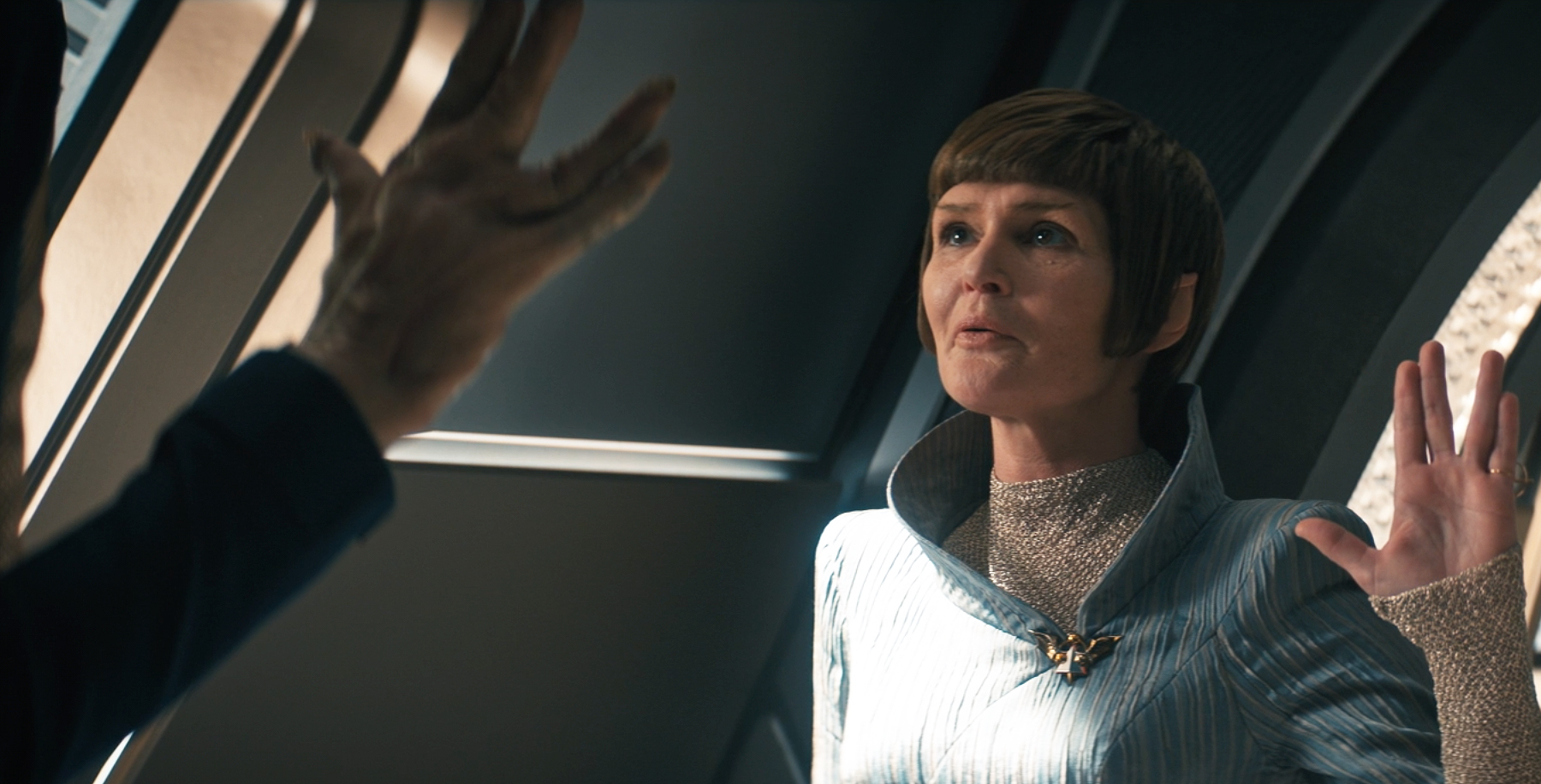
Granted, it's hard to imagine what the whole season will look and feel like once it's complete and we can see how each episode slots into its place, but as they drop one at a time, week by week, this is all we can go on. However, seeing the whole of Season 2, for example, in its entirety did not change the fact that it gradually descended into utter awfulness. Throughout this season, the story flow has been uneven, with some episodes containing lots of plot and others where not that much happens. And that would be okay if the story arc was running longer than one season, but so far that hasn't happened and it's unlikely that it ever will, since it's considered a bad strategy by the networks now who want to pull in viewers without making them feel like they need to know too much about the story.
We don't know what the viewing numbers are for this season of Discovery, but we can't help but think that the other major sci-fi show airing at the moment is more than likely gaining viewers and this one is losing them. The shockingly bad finale of "Picard" didn't help the cause either, although at least "Lower Decks" was a pick-me-up.
"Star Trek" is many things and in the past it has managed to equally represent these; it's finest moments can be found in "Deep Space Nine" and "Enterprise," but the idea that it also represents escapism and adventure in the stars seems to have been lost and I should definitely not want to watch "The Green Mile" after an episode of "Discovery" because it feels like lighter entertainment. The two very best examples of thrilling — and often extremely emotional — sci-fi dramas are "Babylon 5" and "Battlestar Galactica" and I wish with all of my heart that my favorite sci-fi was at least as good as these, because at the moment it's not even in the same league.
Rating: A generous 5/10
Temba, his arms wide ✓
- USS Yelchin, like the Nog, is another nice tribute, this time to Anton Yelchin
- Nice to see Adm. Vance utilizing Burnham's potential at last
- Burnham's "nuts to you" decision in the T'Kal-in-ket paid dividends
- Gabrielle's Oracle-style routine was a nice idea, the set piece just felt rushed
Shaka, when the walls fell ✗
- In one episode, Burnham goes from "nah, not for me" to "Oh, this is so me"
- Tilly's promotion to acting First Officer raises so many issues
- A courtroom-style drama turns into an open therapy personal session
- Discovery's had a total refit, why isn't the crew wearing the new uniforms?
- The intimacy between Burnham and Book also felt so very rushed
CBS All Access is the home of "Star Trek: Picard," "Star Trek: Discovery," "Star Trek: Lower Decks" and a host of other original and archival CBS television shows. Subscriptions start at $5.99 a month. You can try CBS All Access for a week free here.
Follow Scott Snowden on Twitter. Follow us on Twitter @Spacedotcom and on Facebook.
Join our Space Forums to keep talking space on the latest missions, night sky and more! And if you have a news tip, correction or comment, let us know at: community@space.com.
When Scott's application to the NASA astronaut training program was turned down, he was naturally upset...as any 6-year-old boy would be. He chose instead to write as much as he possibly could about science, technology and space exploration. He graduated from The University of Coventry and received his training on Fleet Street in London. He still hopes to be the first journalist in space.

